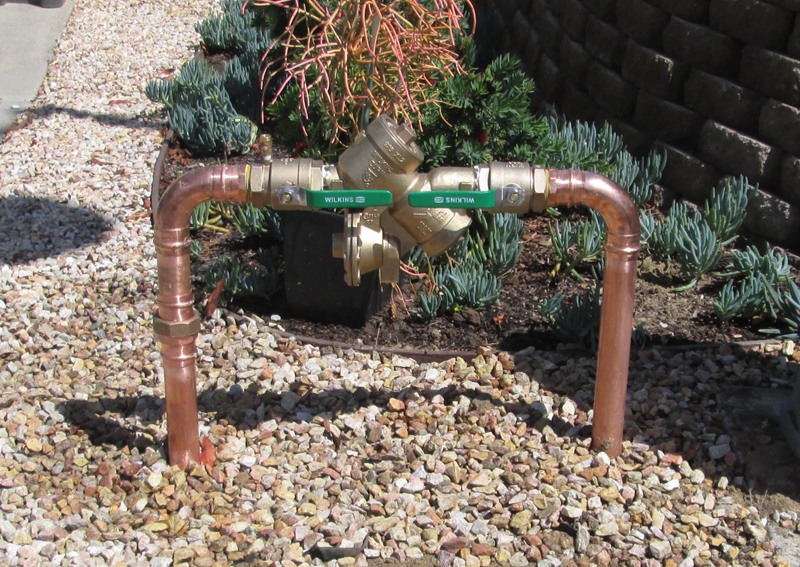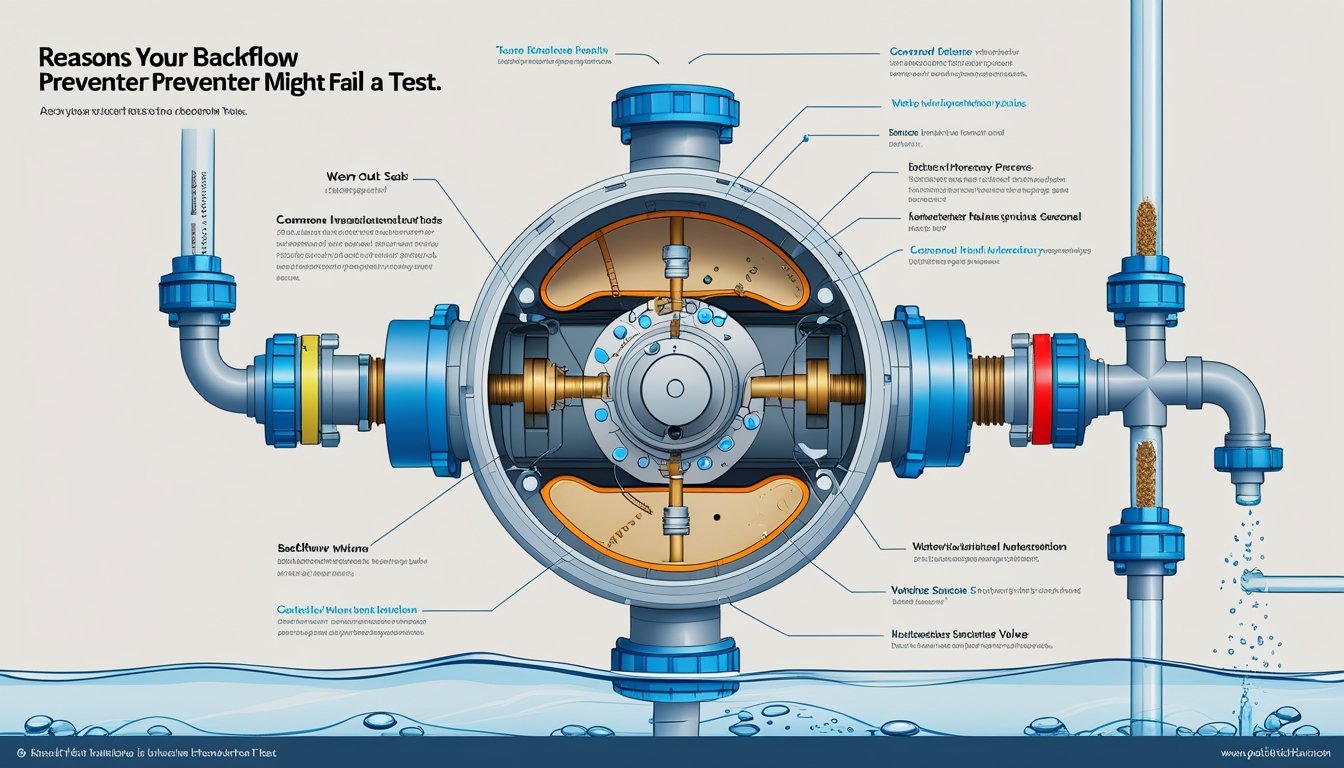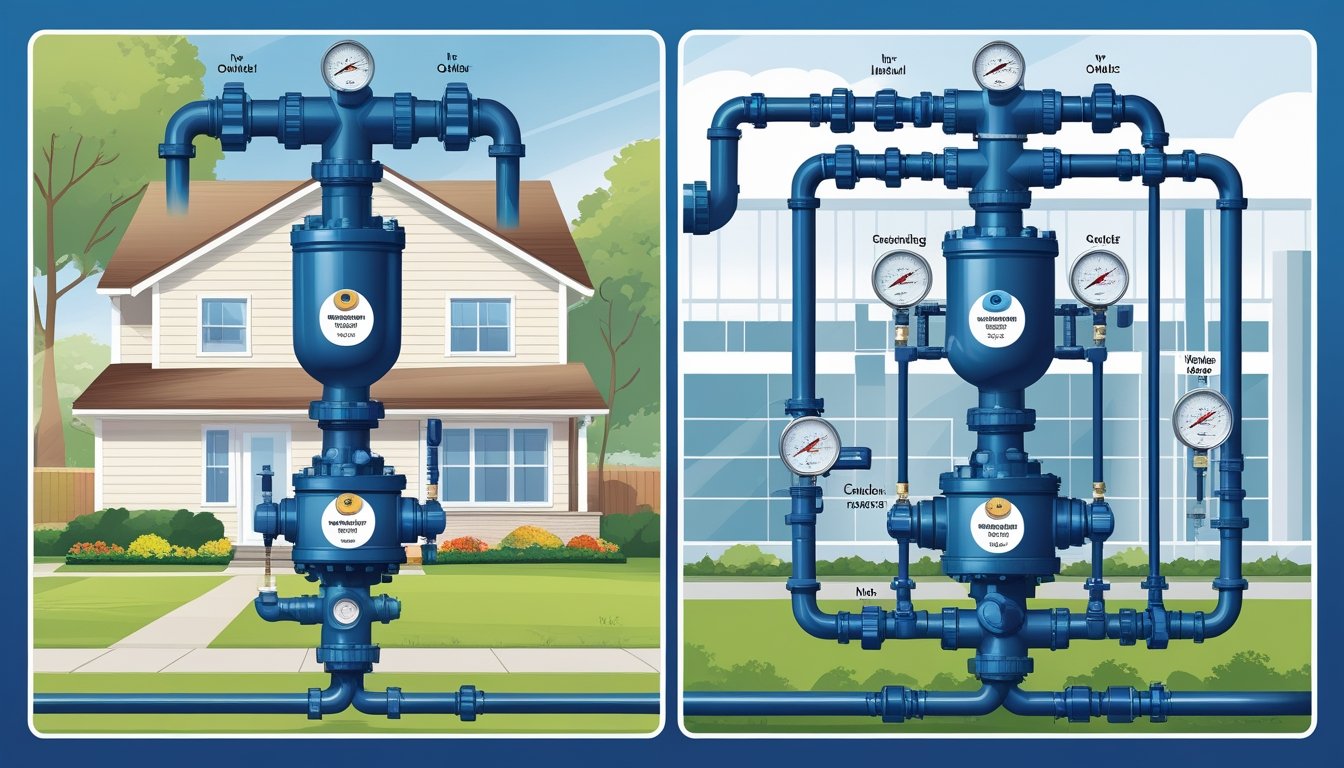Skipping your annual backflow testing? That’s a gamble you probably don’t want to take. You could face fines, have your water shut off, or—worse—let nasty chemicals sneak into your clean water. In places like San Diego County, these tests aren’t optional; the law says you need them to make sure your backflow prevention device is up to the job.
Miss the deadline, and your water provider might just cut you off until you sort things out. But it’s not just about rules and paperwork. If your backflow device fails, your home or business could get exposed to pesticides, fertilizers, or other stuff you really don’t want in your water. Regular testing keeps your water safe for everyone who uses it.
At Pacific Backflow, we try to make the whole thing painless. Our certified technicians do the testing and handle the paperwork for you. You stay compliant, and your water supply stays protected—no headaches.
Why Annual Backflow Testing Is Essential
Skipping your yearly backflow test? That’s risky. You’re not just breaking the rules—you’re putting your water at risk. Testing checks if your backflow preventer is actually doing its job and helps keep everything safe.
Purpose of Backflow Prevention
Backflow prevention is all about stopping dirty water from sneaking back into your clean supply. If water pressure drops or shifts, stuff like bacteria or chemicals could flow the wrong way.
Think of your backflow preventer as a one-way gate for water. It keeps your drinking water clean and your family healthy. If the device isn’t working, contamination becomes a real possibility.
Annual testing checks the seals, valves, and other parts. If anything’s worn out or leaking, you’ll know before it turns into a bigger problem.
How Testing Protects Water Quality
Testing makes sure every part of your backflow device is working. Certified testers look for leaks, broken seals, or busted springs. If something’s off, you’ll get a report so you can fix it before it’s a real threat.
Catching small issues early is way better than dealing with a major contamination. It’s a quick step that keeps your water safe.
Pacific Backflow’s team takes care of testing and the paperwork for San Diego County folks—so you don’t have to sweat the details.
Legal and Regulatory Requirements
Most places—California included—want you to test your backflow preventer every year. It’s not just a suggestion; it’s the law.
Skip the test or forget to send in the results, and you could get fined. Do it enough times, and they might even shut off your water.
Following these rules keeps you in good standing and helps protect everyone’s water. Pacific Backflow files your reports on time, so staying legal is simple.
What Happens If You Skip Annual Backflow Testing?
Blowing off your annual backflow test? That can mean trouble—both for your water safety and with the law. Contaminated water, health risks, and equipment failures can all sneak up on you.
Potential for Contaminated Water
If you skip testing, your backflow device might fail and you’d never know. That’s its whole job: stopping dirty water from flowing backward. If it’s not working, chemicals and bacteria can get into your drinking water.
That’s bad news for everyone using the supply. Plumbing can get damaged, and illness can spread. Plus, most areas require annual testing, so missing it can break local rules and put your water at risk of being shut off.
Increased Health Risks
When you don’t test your backflow device, you might be drinking unsafe water. Contaminants in the clean supply can lead to stomach bugs, rashes, or worse. Regular testing is an easy way to dodge these problems.
Kids, seniors, and anyone with a weaker immune system are especially vulnerable. Keeping your backflow device in check helps protect everyone around you.
Undetected Equipment Failure
Backflow devices have moving parts that just don’t last forever. If you skip annual testing, you might not notice leaks or worn-out parts until something goes wrong.
Catching these issues early means cheaper repairs and less risk. Pacific Backflow’s certified techs in San Diego County can spot problems fast and handle the paperwork—making life easier for you.
Legal and Financial Consequences
Skipping your annual backflow testing isn’t just a hassle—it can get expensive. Fines can rack up, and your insurance could even bail if you’re not keeping up.
Possible Fines and Penalties
Don’t submit your annual test results? Local water authorities might hit you with fines. They usually start small but can snowball if you keep ignoring them. Sometimes, the district will just turn off your water until you fix things.
These rules are there to protect the public water supply, so authorities don’t mess around.
To avoid all that, get your testing done on time. Pacific Backflow can help with both the testing and the paperwork, so you don’t miss a deadline.
Voided Insurance Policies
Skipping your annual test can mess with your insurance, too. A lot of companies want proof you’re keeping up with maintenance before they’ll cover water damage or contamination.
If you don’t have that proof, your policy could be void if something goes wrong. That means you’re footing the bill yourself.
Keep your insurance valid by showing proof of annual testing. It’s just good sense for your home or business.
Property and Community Impacts
Neglecting your annual backflow test? That can mess with your property’s value and put your neighborhood at risk. Lower home values and water contamination aren’t things you want to deal with.
Effect on Home Value
If you skip backflow testing, your home’s value can take a hit. Buyers and lenders check for compliance, and missed tests are a red flag.
Failed or missed inspections can mean expensive repairs before you can sell. Some lenders might even say no to financing if you’re not up to date. That slows down sales and makes your place less appealing.
Local authorities might slap liens or fines on your property if you’re overdue. That’s another headache you don’t need.
Scheduling annual testing with a reliable provider like Pacific Backflow keeps your property in good shape and ready for the market.
Impact on Neighborhood Safety
Backflow devices protect everyone’s drinking water. If you skip testing, that protection gets shaky.
A faulty device can let chemicals or bacteria into the water, putting everyone nearby at risk—including your own family.
Water authorities can fine you or shut off your service if you don’t test. The whole neighborhood’s water quality is on the line.
Staying current with testing helps keep your community’s water clean. Pacific Backflow makes sure your device is working the way it should.
Repair and Replacement Costs
Blowing off annual testing can lead to big repair bills. Emergency fixes cost way more than regular maintenance. Knowing what’s at stake can save you a lot of hassle and money.
Costly Emergency Repairs
If your backflow preventer fails without warning, repairs can get pricey. Emergency leaks or breakdowns can mean urgent, expensive work—and you might have to pay extra for after-hours service.
Repair costs can jump from a few hundred to over a thousand dollars. Ignoring little problems usually means bigger disasters later. Fixing things right away is always cheaper than waiting.
Long-Term Maintenance Expenses
Routine testing and maintenance keep things running smoothly—and at a lower cost. Annual inspections are way cheaper than emergency repairs. If you neglect your device, you might need a full replacement, which isn’t cheap.
Yearly testing fees and minor repairs are a small price to avoid big headaches. Going with experienced companies like Pacific Backflow saves you money and stress over time, and your water stays safe.
How to Stay Compliant with Backflow Testing
Staying on top of backflow testing keeps your water safe and avoids fines or service interruptions. You’ll want to set up regular tests and work with certified pros who know the local rules.
Scheduling and Record-Keeping
You’ve got to schedule your backflow test every year. Most districts require it to make sure your device is working and your water’s safe. Set a reminder or ask your tester to reach out before it’s due.
Keep copies of your reports—sometimes you’ll need to send them to the water authority. Miss a report or send it late? That could mean fines or losing your water. Organized records make compliance easy and let you track your testing history.
Services like Pacific Backflow can help with reminders and filing, making the whole thing less of a headache.
Choosing Certified Professionals
Only certified testers can do backflow testing. Certified pros know what to look for and how to spot leaks or damage that could cause contamination.
Hiring the right people keeps you from running into costly mistakes. Certified testers handle both the inspection and the reporting your water authority needs, so your service stays active.
Always check that your tester’s certification is valid and current in your area. Pacific Backflow’s techs know San Diego County’s rules inside and out, so you’re getting reliable service.
Common Myths About Backflow Testing
A lot of folks get backflow testing wrong. Some think it’s a one-and-done thing, or that the device can just take care of itself. These myths can lead to skipping important tests—and that’s risky.
Assuming It’s Not Needed Every Year
Maybe you figure backflow testing is something you only need to do once. But annual testing is required in most places, especially in California. The parts inside these devices wear out or break over time.
If you skip yearly tests, you might miss leaks or damage. Something that worked last year could be failing now. And if you don’t test, you could get fined or even lose your water service.
Annual testing is the only way to make sure your device is still up to the job.
Believing Backflow Prevention Is Self-Maintaining
A lot of people think once a backflow preventer is installed, it just works forever. Not true. These things need regular checks—the seals, valves, and springs inside can wear out or get stuck.
If those parts fail, stuff like pesticides or chemicals can end up in your water. And you might not even know it’s happening. Regular testing is the only way to catch issues before they become real problems.
Backflow devices aren’t self-maintaining. They need testing and sometimes repairs. Pacific Backflow in San Diego County can handle all that, so you don’t have to stress about it.
Frequently Asked Questions
Skipping your annual backflow test can mean fines, plumbing problems, and health risks. It pays to know who can test your device and how strict the legal rules are.
Can I get fined for not testing my backflow preventer annually?
Yep, you can. If you skip your annual test, fines can start small but get bigger if you keep missing them. Some places may even shut off your water until you get things sorted out.
What are the potential consequences for my plumbing system if I skip a backflow test?
If you skip testing, you might not notice a faulty backflow preventer. Dirty water could end up flowing backward into your clean water lines, which means contamination and possible damage to your plumbing. That’s not a risk most people want to take.
Who can perform a legitimate backflow prevention test?
Only certified testers are allowed to do official backflow tests. These folks are trained, licensed, and actually know what they’re looking for. At Pacific Backflow, certified technicians handle both the testing and the paperwork, so you don’t have to stress about the details.
What might happen to the local water supply if backflow testing is ignored?
Ignoring backflow testing can let contaminants—think chemicals or bacteria—sneak into the community’s drinking water. That puts everyone’s health on the line and could lead to expensive water treatment or emergency repair situations. Nobody wants that kind of headache.
Are there legal liabilities associated with not conducting yearly backflow prevention tests?
Absolutely. Skipping your annual test can mean legal problems: fines, lawsuits, or forced repairs. Keeping up with backflow testing helps you dodge those issues and stay on the right side of water safety laws.
How important is it to have a certified tester for backflow prevention?
Honestly, it’s pretty important. Certified testers know exactly what to look for, so your device gets a proper check. Plus, local authorities usually want to see results from someone who’s certified—if you go with just anyone, there’s a good chance your test might not even count.











